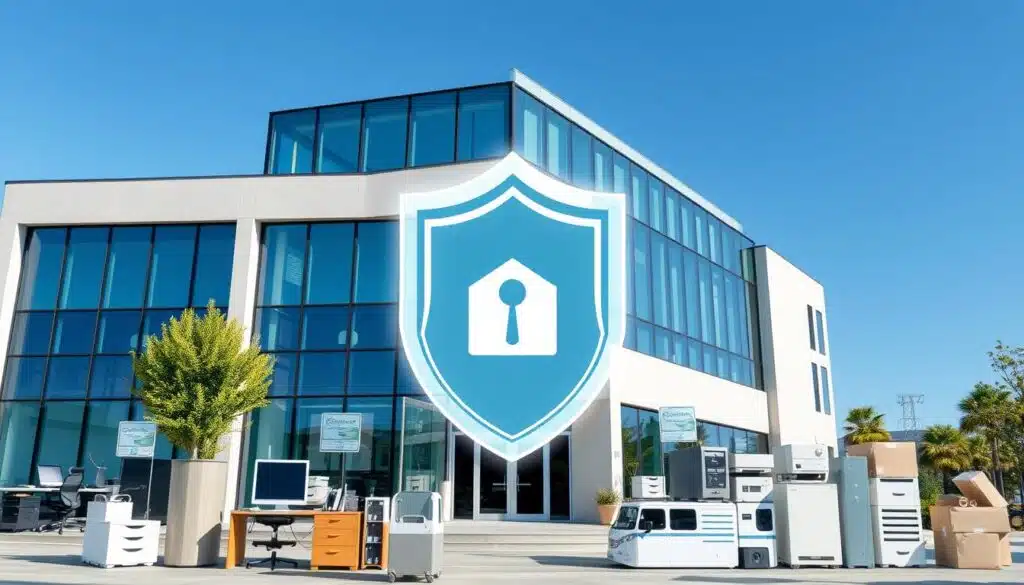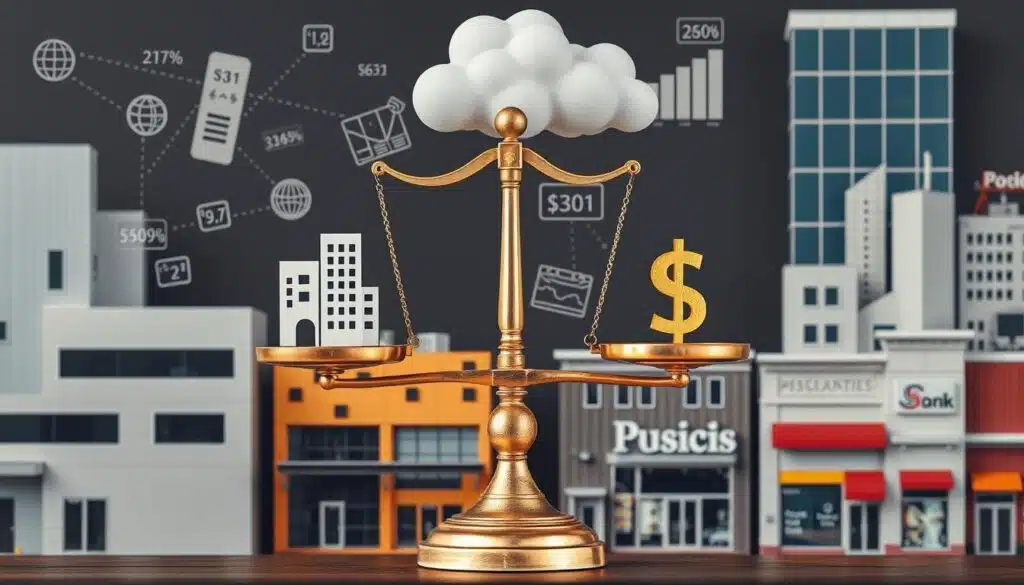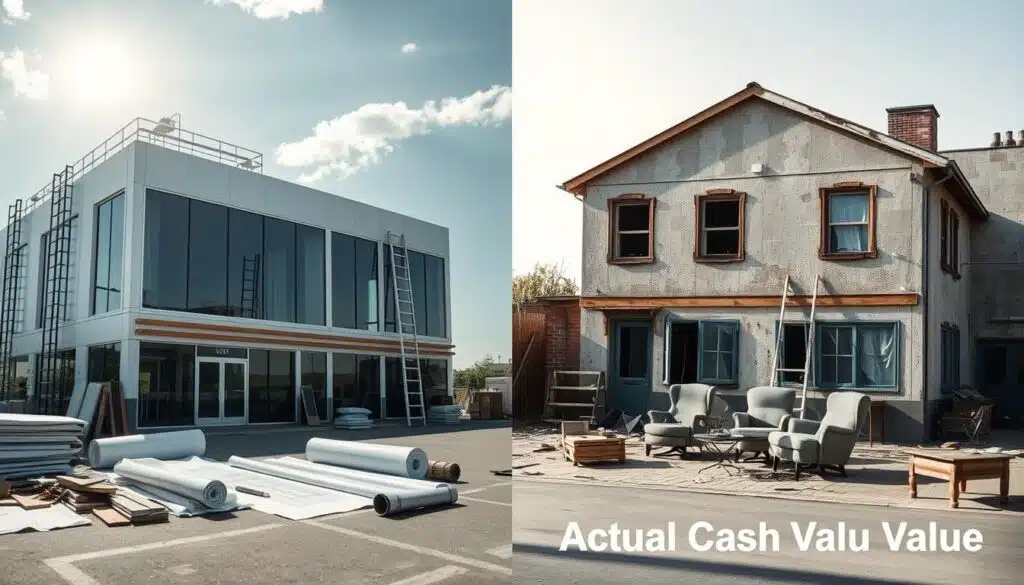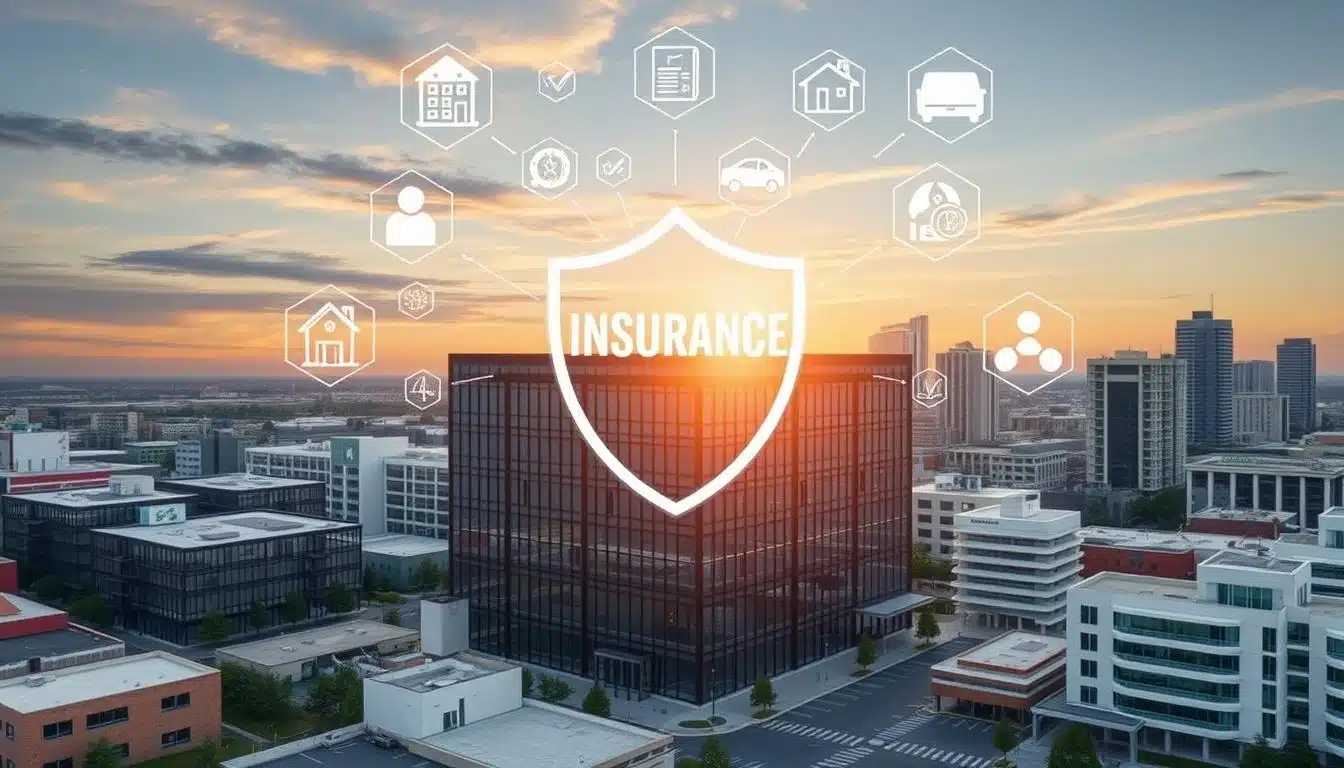Protecting your business assets is key, and business property insurance is at the heart of that. It covers your buildings, contents, and income loss from unexpected events like fire, theft, or wind damage. Knowing the basics of business property insurance helps ensure your policy meets your business’s needs, even in tough times.
Key Takeaways
- Business property insurance safeguards your buildings, contents, and income against unexpected events like fire, theft, and natural disasters.
- Exclusions in basic policies can limit your ability to reopen quickly, so understanding coverage limitations is crucial.
- Insurers offer enhancements like earthquake coverage or small-cost replacements to provide more comprehensive protection.
- Choosing the right amount of coverage involves evaluating building and content values, assessing industry-specific risks, and considering your business size.
- Replacement cost vs. actual cash value coverage can have long-term financial implications, so understanding the impact of depreciation is key.
Understanding Business Property Insurance Fundamentals
Business property insurance is key for any business. It protects the main things needed to keep operations going. This includes buildings, what’s inside them, and things owned by others.
The building itself is covered, like the structure and what’s fixed inside. The stuff inside 100 feet of the building, like furniture and stock, is also protected. This is called business personal property coverage.
Personal property of others coverage is for things you look after that belong to someone else. This ensures you’re covered if something gets damaged or stolen.
Even with good coverage, some things aren’t included. This includes floods, earthquakes, terrorism, and normal wear and tear.
Different Types of Property Insurance Coverage
The type of policy you pick affects how much you’re covered for. There are three main types:
- Special (all-risk) form, which offers the broadest protection against a wide range of perils.
- Basic form, which covers a more limited set of named perils.
- Broad form, which falls somewhere in between the two, providing coverage for a wider range of risks than the basic form.
Key Components of a Property Insurance Policy
When looking at property insurance policies, know the important parts. These include coverage limits, deductibles, and any extra endorsements or riders. The coverage limits show the most the insurer will pay for a loss. The deductible is what you pay first before the insurance helps.
Common Exclusions and Limitations
Insurance policies often have things they don’t cover, like floods, earthquakes, and terrorism. It’s important to check the policy well to make sure it fits your business needs. Missing these details can leave you without protection for important losses.
Business Property Insurance Coverage Options

Businesses have many options for commercial property insurance coverage. The type you choose affects how well your property insurance for your business and business personal property insurance work.
The special form coverage is very comprehensive. It protects against all direct physical damage unless it’s excluded. This type of coverage gives your business the widest protection.
The basic form coverage is more focused. It covers damage from fire, lightning, explosion, and windstorm. It’s a good choice for businesses with lower risks.
The broad form coverage is a mix of the special and basic forms. It includes more perils like falling objects and snow or ice. This type of coverage offers a good balance.
Businesses should also think about business income and extra expense insurance. It helps protect against lost income and ongoing expenses during a business interruption. This ensures your business can keep running.
Another important option is equipment breakdown coverage. It protects permanently installed machinery and equipment from unexpected failures.
Choosing the right commercial property insurance coverage for your business is crucial. You need to think about your specific needs and risks. Talking to a trusted insurance provider can help you find the best property insurance for your business. This ensures your business personal property insurance offers the right protection.
Assessing Your Business Property Insurance Needs

As a business owner or small business owner, it’s key to check your property insurance needs. Your needs might change based on your type of business, the value of your business property, and the risks in your field.
Evaluating Building and Content Values
First, look at the value of your business’s physical stuff. This includes the building, equipment, furniture, and inventory. Find out the replacement cost of these items. This helps make sure you have enough coverage to get back to work if something goes wrong.
Risk Assessment for Your Industry
Then, think about the risks your industry faces. Things like where you’re located, the weather, and how you run your business can affect damage or loss. Talk to your insurance agent to figure out and handle these risks.
Coverage Requirements for Business Size
The size of your business affects your commercial property insurance needs. Bigger businesses might face more liability and need more coverage. Smaller businesses need to find a balance between good coverage and affordable prices.
No matter your business size, getting help from a skilled insurance agent is crucial. They can spot any gaps in coverage and help you get a plan that fits your business property insurance needs.
Cost Factors and Premium Considerations

Understanding business property insurance can be tough. But knowing the key cost factors and premium considerations helps. The cost of your business’s insurance depends on several things. These include the property’s value, its location, and how it’s built. Also, the type of business, fire safety, and past claims matter.
Choosing between deductibles and premiums is important. Higher deductibles might mean lower premiums. But make sure you can afford the deductible if you need to make a claim.
Look at the coverage per employee when evaluating insurance costs. This helps you see if the policy fits your budget and protects your business well.
To lower your premiums, think about risk management. Improving security or fire safety can show insurers you’re serious about safety. This might lead to better rates.
It’s key to review your insurance often as your business grows. What worked before might not now. Adjusting your coverage keeps your insurance effective and fitting your business needs.
| Cost Factors | Impact on Premiums |
|---|---|
| Property Value | Higher property value leads to higher premiums |
| Location | Businesses in high-risk areas face higher premiums |
| Construction Type | Sturdier construction materials may result in lower premiums |
| Occupancy | Businesses with higher-risk activities pay more for coverage |
| Fire Protection | Improved fire suppression systems can lower premiums |
| Claims History | Businesses with fewer claims typically pay lower premiums |
“The cost of commercial property insurance is a crucial consideration for businesses, as it can have a significant impact on their overall operational expenses. By understanding the various factors that influence these costs, business owners can make informed decisions and implement strategies to optimize their insurance coverage and premiums.”
Replacement Cost vs. Actual Cash Value Coverage

Choosing between replacement cost and actual cash value (ACV) coverage is key for your business. It affects your finances over time. Knowing how depreciation works and making the right choice is vital.
Understanding Depreciation Impact
ACV policies might not fully cover the cost of replacing damaged items. They consider the item’s depreciated value, so you might get less than the actual cost. In contrast, replacement cost coverage pays to restore your property to its original state, without depreciation.
Making the Right Choice for Your Business
Replacement cost policies cost more but offer better protection against property damage. ACV policies might be cheaper but could leave you with big expenses if you need to make a claim.
Long-term Financial Implications
When picking your business property insurance, think about the financial gap between ACV payouts and replacement costs. Choosing replacement cost coverage can shield your business from financial stress. It ensures you can quickly get back on track after a loss.
| Scenario | Actual Cash Value (ACV) | Replacement Cost (RC) |
|---|---|---|
| Scenario 1: $2 million property damage | $1.4 million payout with $625,000 out-of-pocket expense | $2 million payout with $0 out-of-pocket expense |
| Scenario 2: $150,000 property damage | $52,500 payout with $87,500 out-of-pocket expense | $150,000 payout with $0 out-of-pocket expense |
Choosing between replacement cost and ACV coverage requires careful thought. Work with a professional insurance agent or broker to find the right policy for your business. This ensures you have the insurance covers needed to help protect your business long-term.
Additional Coverage Endorsements and Riders
When looking at your business property insurance, think about adding extra coverage. These custom options can give you the protection you need for your business.
Business income insurance is a key addition. It helps cover lost income and ongoing costs if your business is interrupted. This is vital for keeping your business running and stable if damage happens or you need to close temporarily.
Equipment breakdown coverage is also important. It helps with the costs of fixing or replacing equipment that suddenly fails. This is great for businesses that use a lot of special machinery or technology.
If you’re in a flood or earthquake zone, you’ll need flood and earthquake insurance. These coverages are essential for protecting your property in areas prone to these disasters.
Also Read : Why Every Professional Needs Insurance Errors And Omissions Coverage?
FAQs
Q: What is property insurance cover for small businesses?
A: Property insurance cover for small businesses is designed to protect your physical assets, including buildings, equipment, and inventory, from risks such as fire, theft, and natural disasters.
Q: How much does property insurance cost for small businesses?
A: The property insurance cost for small businesses varies based on factors like the size of the business, location, and type of coverage needed. Typically, premiums can range from a few hundred to several thousand dollars annually.
Q: What does commercial property insurance cover?
A: Commercial property insurance cover generally includes protection for buildings, business personal property, equipment, and sometimes lost income due to business interruption. It also covers damage from natural disasters and theft.
Q: Do I need commercial property insurance for my small business?
A: Yes, if you own or lease a commercial building, or if you have significant business personal property, you need commercial property insurance to protect against potential financial losses due to damages or losses.
Q: What are the types of business insurance available for small businesses?
A: Types of business insurance include general liability insurance, property insurance, business interruption insurance, commercial auto insurance, and workers’ compensation insurance, among others.
Q: How do insurance companies determine commercial property insurance cost?
A: Insurance companies assess various factors such as the size of the property, its location, the type of business, safety measures in place, and claims history to determine the commercial property insurance cost.
Q: What should I include in a commercial property insurance claim?
A: When filing a commercial property insurance claim, include detailed documentation of the damage, a list of the affected property, photographs, and any relevant receipts or estimates for repairs or replacements.
Q: Is general liability insurance different from commercial property insurance?
A: Yes, general liability insurance protects against claims of bodily injury or property damage caused by your business operations, while commercial property insurance specifically covers damages to your business property.
Q: What is business interruption insurance, and do I need it?
A: Business interruption insurance provides coverage for lost income during a period when your business cannot operate due to a covered event. It is essential for businesses that rely on steady income and can help mitigate financial losses.
Q: What is covered by commercial property insurance?
A: Commercial property insurance typically covers buildings, business personal property, equipment, inventory, and sometimes additional expenses related to the restoration of your business operations after a loss.





